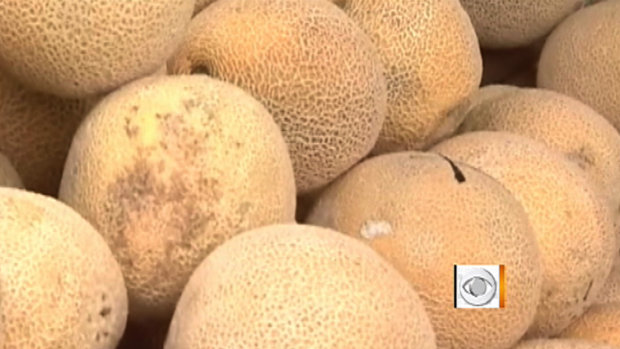Listeria outbreak may last for weeks, officials say: How to stay safe
(CBS/AP) It's not over yet. Health officials say coming weeks may see more illness and death from the outbreak of Listeria traced to contaminated cantaloupes.
PICTURES: Listeria: 7 key questions answered
So far, the outbreak has sickened 72 people and claimed 16 lives in 18 states - making it the country's deadliest outbreak of food-borne illness in more than 10 years.
Thomas Frieden, director of the CDC, and FDA Commissioner Margaret Hamburg said that illnesses are expected for weeks to come because the incubation period for listeriosis can be a month or even longer. Thus someone who ate contaminated cantaloupe last week may not get sick until next month. Jensen Farms last shipped cantaloupes on Sept. 10. The shelf life is about two weeks.
"We will see more cases likely through October," Hamburg said.
Consumers who have cantaloupes produced by Colorado's Jensen Farms should throw them out, the heads of the CDC and the FDA said. Not sure where a piece of fruit is from? Don't eat it.
The government hasn't supplied a list of retailers who may have sold the contaminated fruit. Nor has Jensen Farms. Officials say consumers should ask retailers about the origins of their cantaloupe.
"If it's not Jensen Farms, it's OK to eat," said Frieden. "But if you can't confirm it's not Jensen Farms, then it's best to throw it out."
Jensen Farms of Holly, Colo. says it shipped cantaloupes to 25 states, though the FDA has said it may be more. Illnesses have been discovered in several states that were not on the shipping list. A spokeswoman for Jensen Farms said the company's product is often sold and resold, so it's not always easy to tell where the cantaloupes wind up.
The recalled cantaloupes may be labeled "Colorado Grown," `'Distributed by Frontera Produce," `'Jensenfarms.com" or "Sweet Rocky Fords." Not all of the recalled cantaloupes have a sticker, the FDA said. The company said it shipped out more than 300,000 cases of cantaloupes that contained five to 15 melons. That means the recall involved 1.5 million to 4.5 million pieces of fruit.
The FDA said none of the cantaloupes had been exported.
Sherri McGarry, a senior adviser in the FDA's Office of Foods, said the agency is trying to figure out how the cantaloupes became contaminated. Listeria bacteria grow in moist, muddy conditions and are often carried by animals.
The health officials said this is the first known outbreak of listeria in cantaloupe. Listeria is generally found in processed meats and unpasteurized milk and cheese, though there have been outbreaks in produce. Hamburg called the outbreak a "surprise."
Listeria is deadlier than well-known pathogens like salmonella and E. coli, though those outbreaks generally cause many more illnesses. Twenty-one people died in an outbreak of Listeria illness in 1998 traced to contaminated hot dogs and possibly deli meats made by Bil Mar Foods, a subsidiary of Sara Lee Corp. Another large Listeria outbreak, in 1985, killed 52 people and was linked to Mexican-style soft cheese.
Listeria generally only sickens the elderly, pregnant women and others with poor immunity. The CDC said the median age of those sickened is 78 and that 1 in 5 who contract the disease can die from it. Symptoms include fever and muscle aches, often with other gastrointestinal symptoms.
Unlike many pathogens, Listeria bacteria can grow at room temperatures and even refrigerator temperatures - and can linger long after the source of the contamination is gone. Health officials say people who may have had the contaminated fruit in their kitchens should clean and sanitize any surfaces it may have touched.

